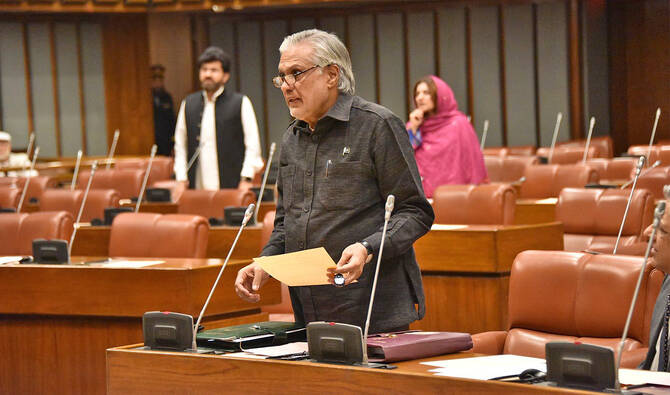By Staff Reporter
ISLAMABAD: Pakistan and India have prolonged their U.S.-brokered ceasefire until May 18, a move that tempers hostilities between the nuclear-armed neighbours, Deputy Prime Minister and Foreign Minister Ishaq Dar said on Thursday.
The extension, building on last week’s truce, opens the door to political talks aimed at tackling longstanding thorny disputes, notably over Kashmir and water rights.
“Now it [ceasefire] has been extended till [May] 18, so obviously, now ultimately, things will go to the dialogue,” Dar told parliament in televised remarks. “For now, these are military-to-military communications, so obviously, then political dialogue will take place. The resolution of all issues lies there.”
Dar emphasised Pakistan’s desire for peace with dignity, telling the Senate that the country sought a “composite dialogue” with India to address all contentious issues. “We have told the world that we will hold a composite dialogue,” he said, highlighting Pakistan’s rising diplomatic clout. “We’re no longer irrelevant; we’ve proven our strategic significance.”
The ceasefire follows a sharp escalation sparked by the Pahalgam shooting in occupied Kashmir that killed 26 people, and which India quickly blamed on Pakistan without evidence. Pakistan offered a transparent and neutral investigation, but India refused, escalating hostilities between the arch-rivals.
The violence erupted after India launched nighttime air raids on May 6-7 in retaliation for the Pahalgam killing. Pakistan responded with missile strikes, triggering a cycle of aerial and artillery exchanges that stretched across the region.
The brief but fierce conflict raised fears of a broader conflict, prompting international intervention.
President Donald Trump, who helped negotiate the ceasefire, praised both nations during a Gulf tour stop at a US military base in Qatar. “Pakistan and India are very happy with that,” Reuters reported Trump as saying. US President urged the rivals to focus on trade, not war.
The US State Department echoed Trump’s optimism. “What we are happy to see is the ceasefire. That’s where our focus remains — and on the direct talks we want to see,” Tommy Piggott, Principal Deputy Spokesperson said at a Thursday press briefing in Washington. For the past couple of days, we’ve been saying that we want to encourage and see direct talks between the parties. We have been clear on that.”
The Foreign Minister clarified that Pakistan did not initiate the ceasefire request. Instead, US Secretary of State Marco Rubio informed Pakistani officials during a phone call that India was willing to halt hostilities. “We told our friends that we would not initiate an attack, but we would certainly respond if provoked,” Dar told the Senate, describing Pakistan’s response as “measured, decisive, and in line with international law.”
At the heart of the rift lie Kashmir and the Indus Waters Treaty.
Dar told lawmakers that Pakistan has never accepted India’s 2019 revocation of occupied Kashmir’s special status, a move that inflamed tensions in the region both nations claim in full. He also issued a stern warning about the treaty, which governs water sharing between the two countries.
“For us, this is a no-go area,” Dar said of any attempt by India to suspend the agreement. “We had announced it on April 24 as well that it [treaty suspension] will be treated as an act of war.” He accused India of using the Pahalgam incident as a pretext to undermine the treaty, noting, “It could neither be amended nor terminated unilaterally.”
Copyright © 2021 Independent Pakistan | All rights reserved




